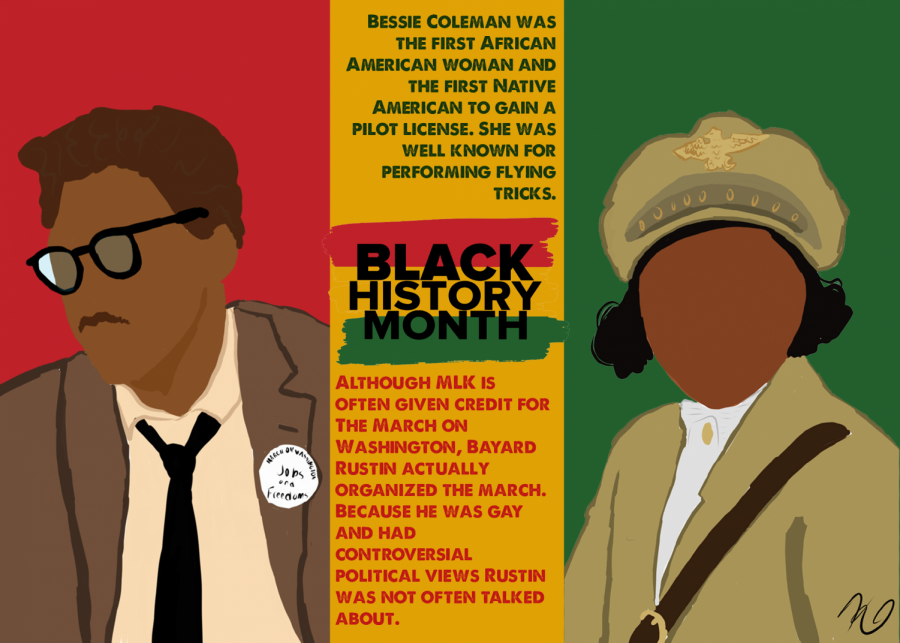The lesser-known icons of Black History Month
February is Black History Month, which is a time to honor people who have dedicated their lives to fighting for equality. This month is also a good time to become better educated and dig deeper into the stories of Black Americans throughout American History.
In 1926, Black History Week, which is in the second week of February, was formed by the Association for the Study of African American Life founded by Carter G. Woodson. The committee chose this week to honor the birthdays of both Abraham Lincoln and Frederick Douglass who fought to end slavery. In the 1960s, many people agreed one week was not long enough to celebrate Black history and started to celebrate throughout the whole month of February. In 1976, President Gerald Ford announced February was to be Black History Month, making it official.
This month learning about lesser known individuals, who may not be mentioned in school history courses, will allow for a deeper understanding of Black history. Claudette Colvin, born Sept. 5, 1939, refused to give up her seat nine months before Rosa Parks did, at the age of 15, in the exact same city. Colvin was thrown in jail for this; she later became a civil rights activist and took part in bus boycotting. So, why is Parks more well known than Colvin? The biggest reason Colvin did not receive much attention was her pregnancy as a teen, but some other contributing factors included her “unkempt hair” and that she did not have fair skin. The Civil Rights movement wanted to be as “appealing” and non-scandalous as possible, so Colvin’s story was rarely talked about. There is now a book about her life called “Claudette Colvin: Twice Toward Justice” written by Phillip Hoose. Uncovering parts of history, such as Colvin’s story, allows for a deeper understanding of how the civil rights movement really began.
One thing to do this month to honor Black history is to listen to people of color. Whether it’s listening to a podcast, reading a blog or watching a video, hearing Black voices this month is important. Secondly, reading books written by Black Americans about Black experiences in America is a great way to put oneself in another person’s shoes. There are books written about slavery, such as “Life and Times of Frederick Douglass” by Frederick Douglass, to books written about modern day America such as “The Hate You Give” by Angie Thomas. A third way to learn about Black history is to watch the History Channel, Netflix and Amazon Prime. All of which are featuring Black history films and documentaries this month. Finally, consider supporting local Black owned businesses, which is an important thing to do especially during the COVID-19 pandemic.
Altogether, it is important to learn about people in history who are not usually talked about. Throughout the years, Black voices have been suppressed and in 2021 it is time to give their voices back to them. Take the time to dig a little deeper into Black History this month.



